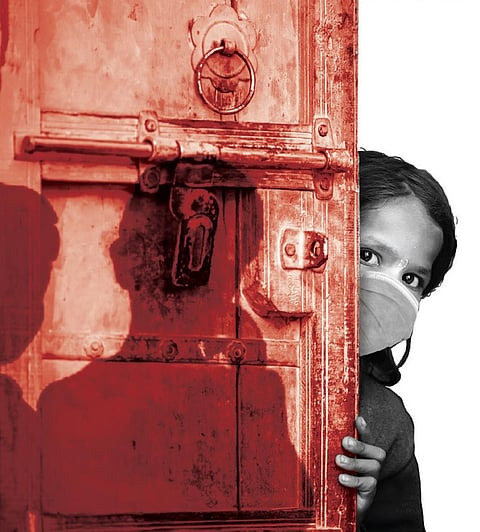COVID-19 pandemic & children: Socio-economic shifts likely in future
The novel coronavirus disease (COVID-19) pandemic can be considered historic event. This is an unsettling period for all of humankind.
But one encouraging lesson we can draw from previous pandemics throughout history is that humans are incredibly resilient, and can not just survive such adverse events but also thrive in them.
This holds true for even the deadliest outbreaks in human history, such as the Plague or “black death” pandemic of the 14th and 15th centuries.
While the disease led to unimaginable suffering and wiped out one-third of Europe’s population, it also paved the way for advancement in science, agriculture and medicine and set the stage for cultural transformation in philosophy and art.
Therefore, it is certain that as a species we will survive this outbreak as well; but how it will affect our future and shape the global community remains to be seen.
Pandemics and other events are marked by uncertainty and anxiety. These are inevitably projected onto the future generations. However, at this point we can only speculate on the long-term effects of covid-19 on children.
Some impacts are already being felt. For instance, education has suffered due to repeated disruptions and gross disparities in access to remote-learning resources. As a result, children of today may not attain the same educational levels as their predecessors.
In addition, the pandemic has accentuated gross socio-economic inequalities in the society. Like education, children belonging to higher socio-economic strata also had better access to crucial healthcare services.
Some effects will only be evident much later. For instance, mandatory use of masks and social distancing may result in future generations gaining limited social skills or poor ability to interpret facial non-verbal cues. Consequently, social interactions may be diminished. Incidentally, social distancing will not just slow down the circulation of covid-19 but also of other infectious agents, “depriving” children of building immunity to common ailments.
Finally, changes in lifestyle due to perceived contagion risks may result in long-term shifts in professional, social or mating preferences.
The future generations and their ability to become resilient and thrive in the post-covid-19 era is predicated on the provision and allocation of adequate resources. Now is the time to reimagine and reinvent education, healthcare and social services to help future generations become successful adults.
Huremovic is director of psychiatry at North Shore University Hospital, New York. Joshi is a fellow at Zucker School of Medicine Consultation-Liaison Psychiatry Fellowship at Long Island Jewish Medical Center and North Shore University Hospital, New York.
Views expressed are the author's own and don't necessarily reflect those of Down To Earth.

